Indigenous Governance Database
IGD Database Search
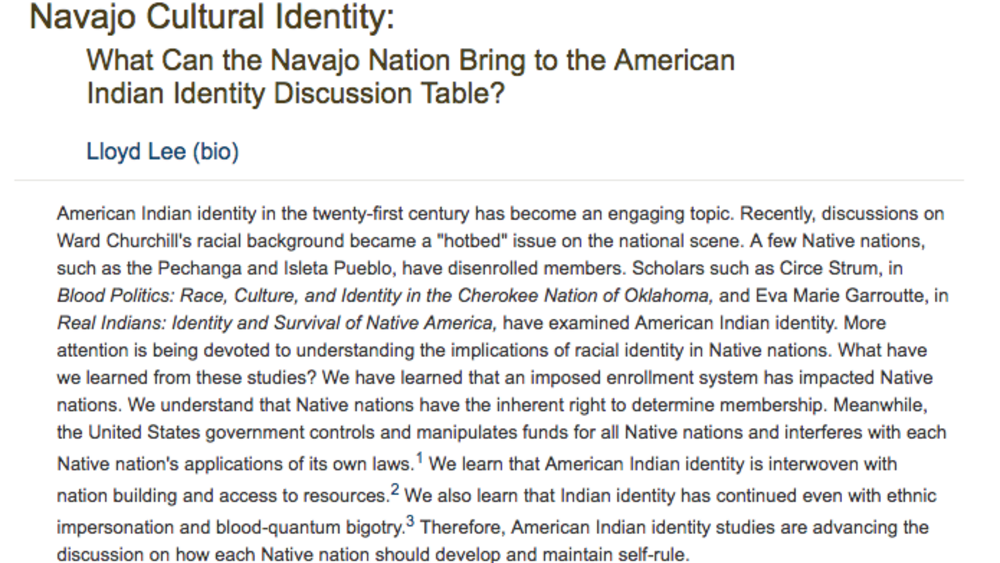
Navajo Cultural Identity: What can the Navajo Nation bring to the American Indian Identity Discussion Table?
American Indian identity in the twenty-first century has become an engaging topic. Recently, discussions on Ward Churchilla's racial background became a hotbed issue on the national scene. A few Native nations, such as the Pechanga and Isleta Pueblo, have disenrolled members. Scholars such as Circe…
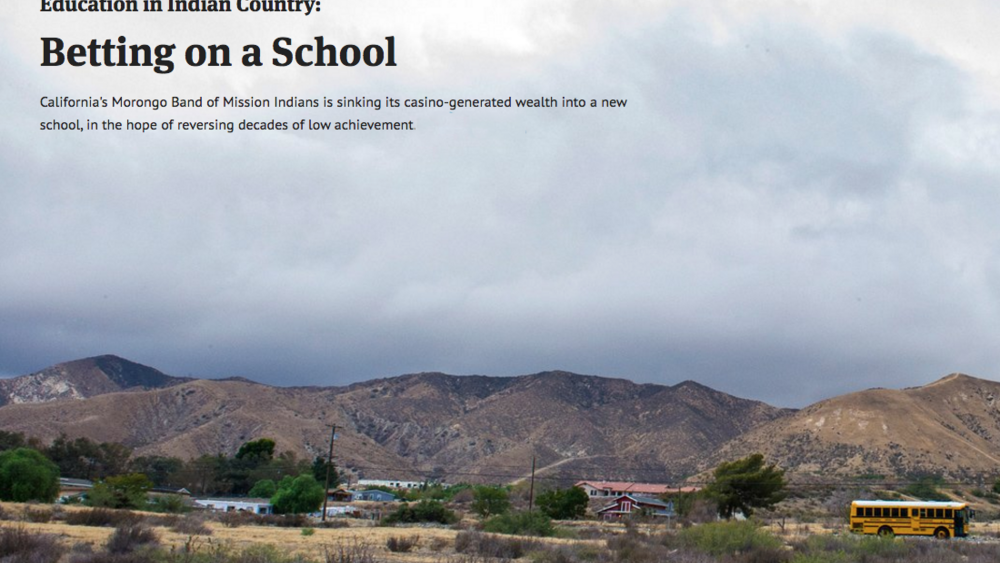
Betting on a School
Ninety miles east of downtown Los Angeles in the San Bernardino Mountains, a school for Native American children peers down onto its main benefactor, a glittering, Las Vegas-style casino and hotel owned and operated by the Morongo Band of Mission Indians. Millions of dollars spent in the casino by…
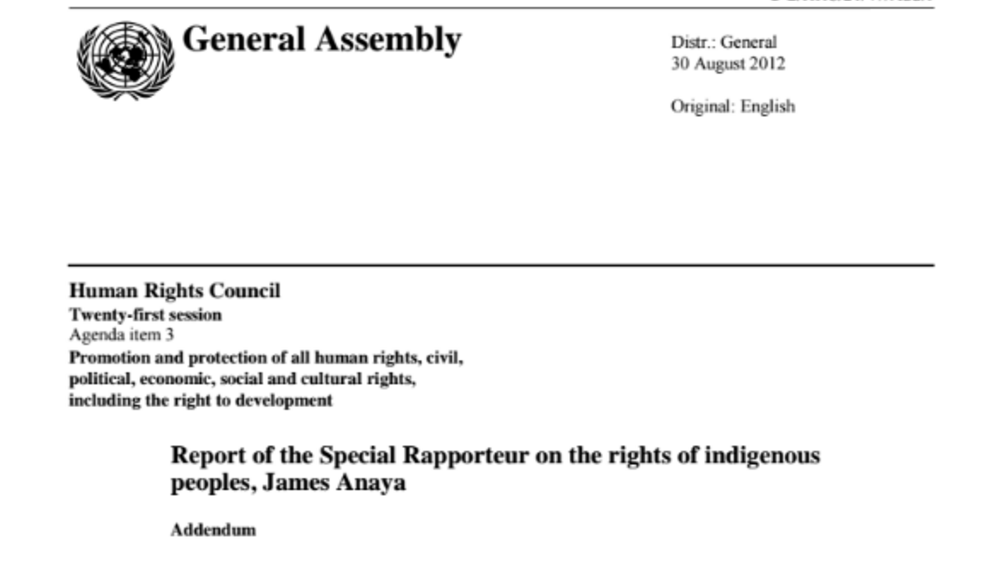
The situation of indigenous peoples in the United States of America
In this report, the United Nations Special Rapporteur on the rights of indigenous peoples examines the human rights situation of indigenous peoples in the United States, on the basis of research and information gathered, including during a visit to the country from 23 April to 4 May 2012. During…
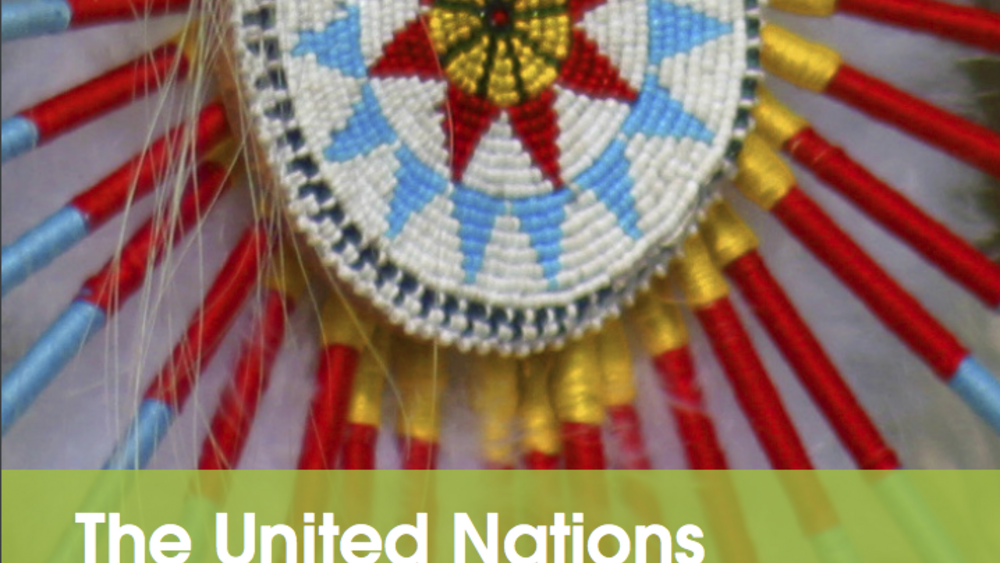
The United Nations Declaration on the Rights of Indigenous Peoples: With an Introduction for Indigenous Leaders in the United States
On September 13, 2007, the United Nations General Assembly adopted the Declaration on the Rights of Indigenous Peoples, affirming that indigenous peoples are equal to all other peoples and have the right to self-determination, along with an array of related rights, including rights to traditional…
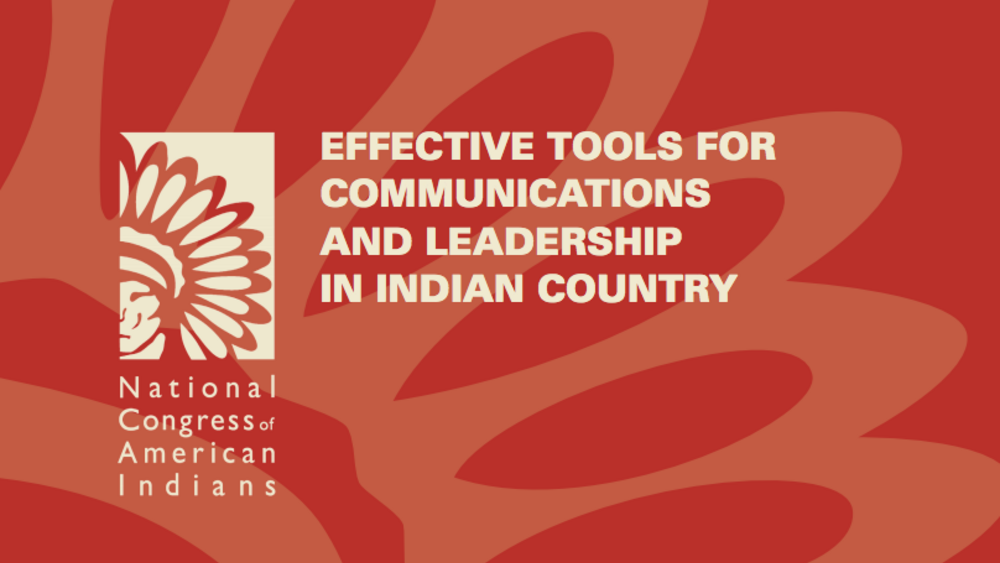
Effective Tools for Communications and Leadership in Indian Country
A thirty-six page toolkit, this NCAI publication outlines the tools, tactics, and strategies from tribal communications experts. The toolkit aims to help tribal leaders and Indian Country advocates in ever changing media and communications landscape.
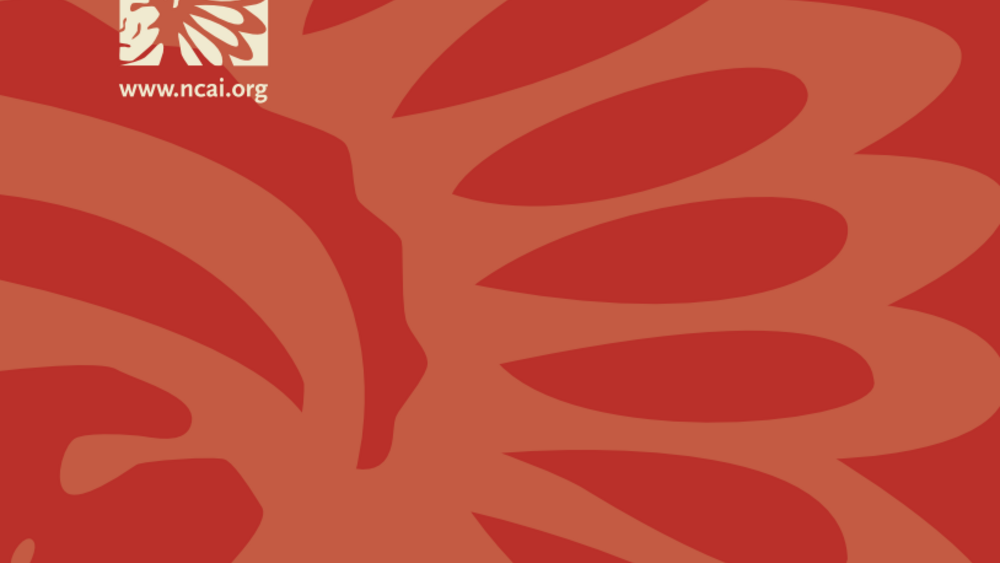
Leadership and Communications in Indian Country
This four-page report outlines the key findings from interviews with five tribal leaders and tribal communications officers across the country. The conversations focused on exploring how communications helps in their daily work, how the communications playing field has changed over the years and…
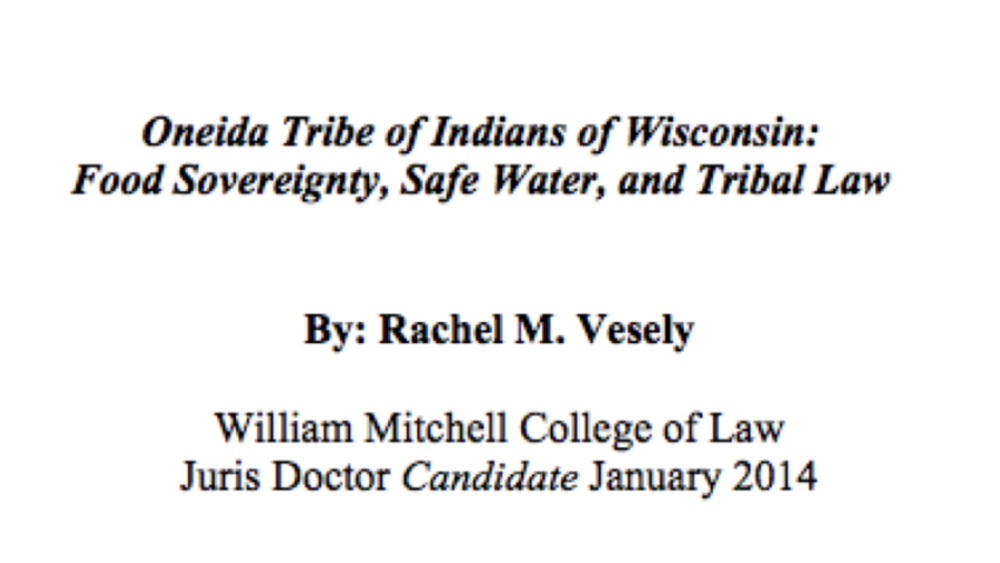
Oneida Tribe of Indians of Wisconsin: Food Sovereignty, Safe Water, and Tribal Law
An example of a Native American community working to achieve food sovereignty not only with physical nutrients but also with social elements is the Oneida Tribe of Indians of Wisconsin. This article analyzes the strengths of the Oneida Tribe's approach to preserving water quality and fishing…
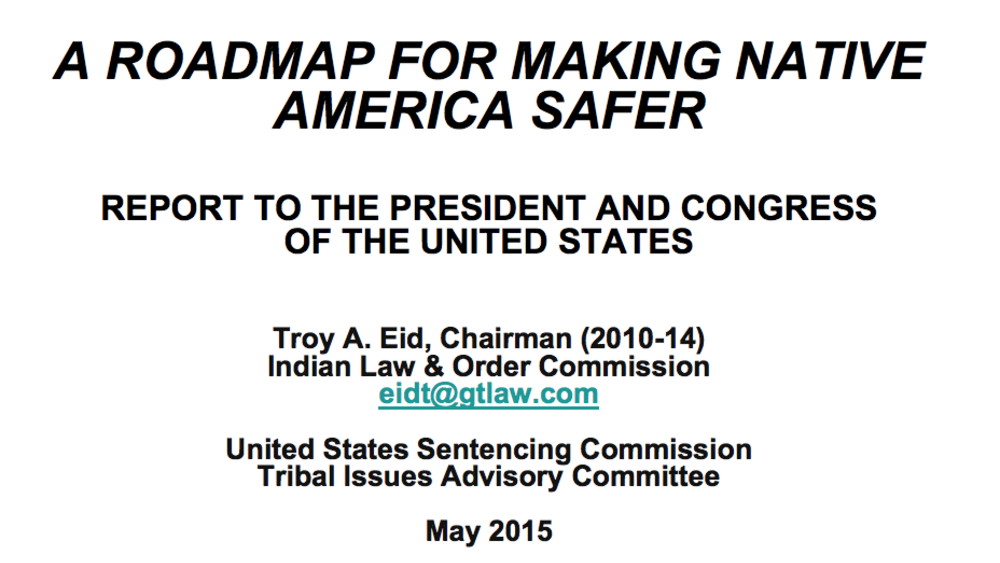
A Roadmap For Making Native America Safer: Report To The President And Congress Of The United States
A Roadmap for Making Native America Safer (Roadmap) provides a path to make Native American and Alaska Native communities safer and more just for all U.S. citizens and to reduce unacceptably high rates of violent crime rates in Indian country. The Roadmap is the culmination of hearings,…
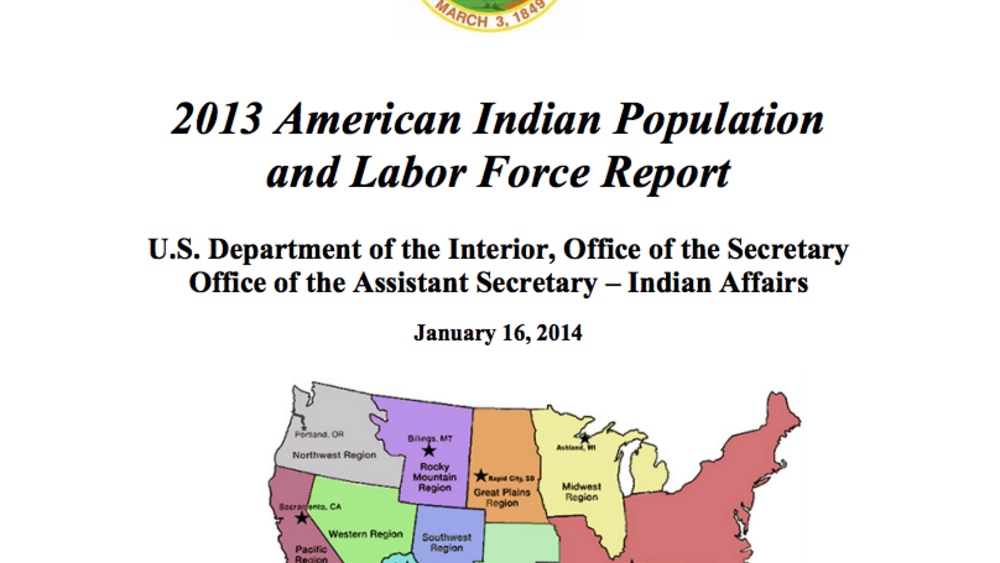
2013 American Indian Population and Labor Force Report
This report presents findings from the 2010 Labor Force Survey of American Indians and Alaska Natives, combined with a larger set of publically available statistics produced by the U.S. Census Bureau. This report is prepared in accordance with Public Law 102-477 the Indian Employment, Training, and…
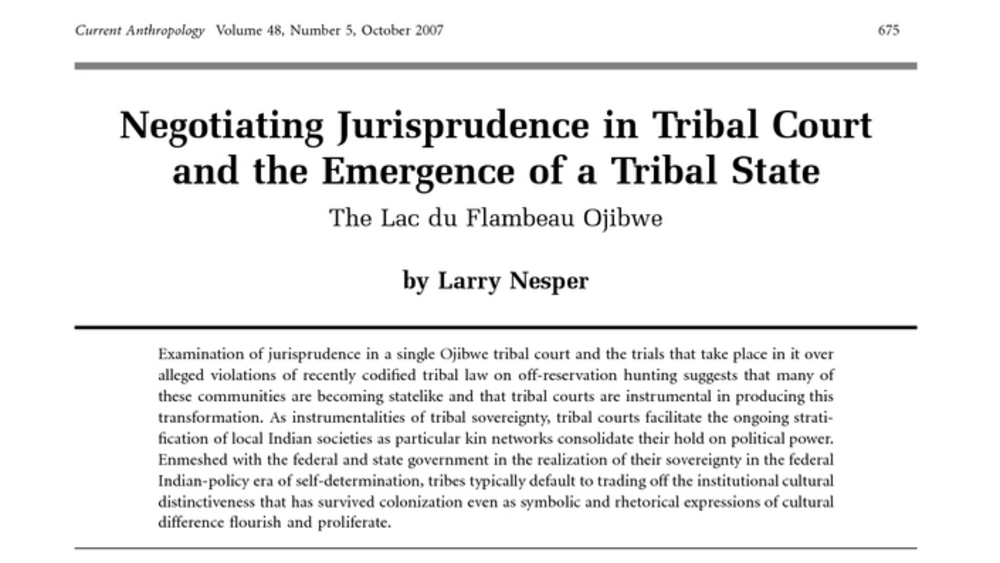
Negotiating Jurisprudence in Tribal Court and the Emergence of a Tribal State: The Lac du Flambeau Ojibwe
The interaction between American Indian activism and changes in federal Indian policy since the 1960s has transformed American Indian tribes from largely powerless and impoverished kinshipâ€based communities into neocolonial statelike entities (Wilkinson 2005).1 Representing themselves as distinct…
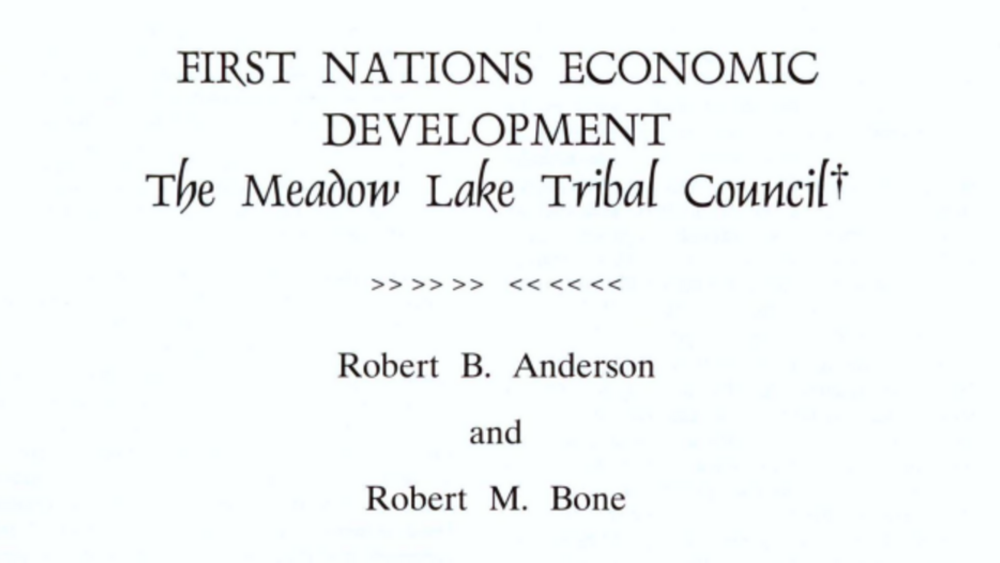
First Nations Economic Development: The Meadow Lake Tribal Council
A new approach to economic development is emerging among the First Nations in Canada. This approach emphasizes the creation of profitable businesses competing in the global economy. These businesses are expected to help First Nations achieve their broader objectives that include: (i) greater…
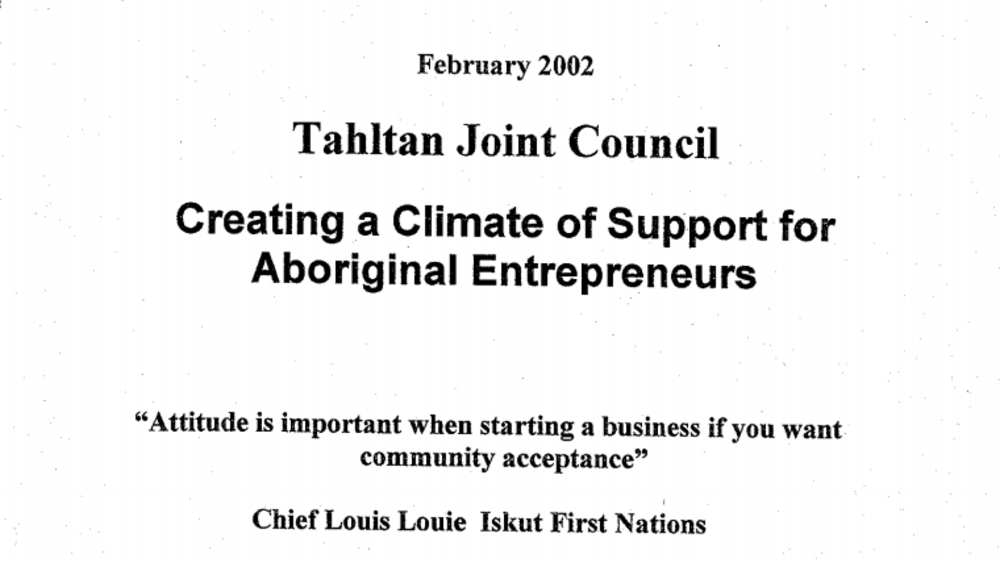
Creating a Climate of Support for Aboriginal Entrepreneurs
Three First Nations communities formed a partnership with SFU to investigate ways to create a supportive environment for Aboriginal entrepreneurs. This project followed the Western Diversification/Simon Fraser University study (2001) on the information and service needs of Aboriginal entrepreneurs…
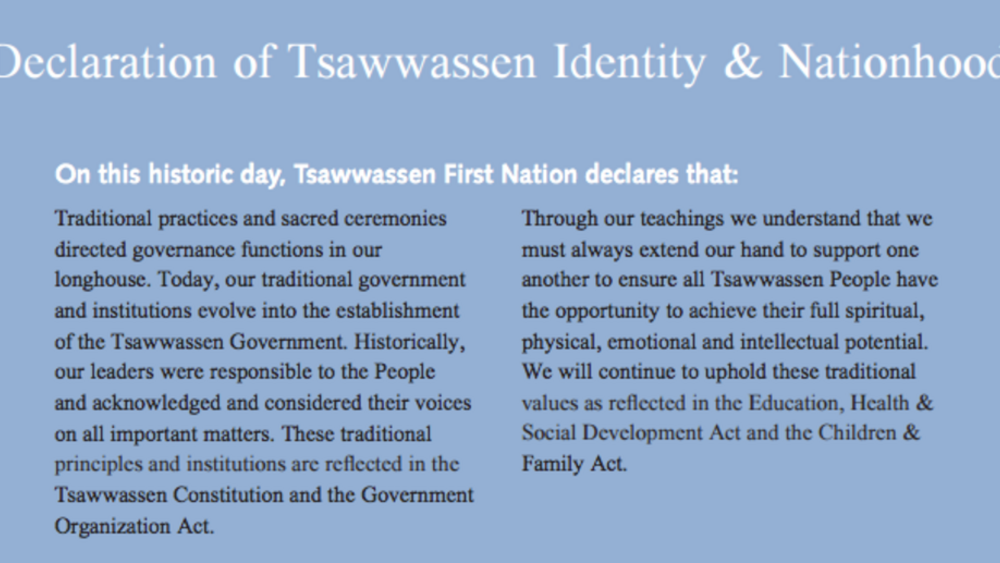
Declaration of Tsawwassen Identity & Nationhood
We are Tsawwassen People "People facing the sea", descendants of our ancestors who exercised sovereign authority over our land for thousands of years. Tsawwassen People were governed under the advice and guidance of leaders, highborn women, headmen, and speakers through countless generations...
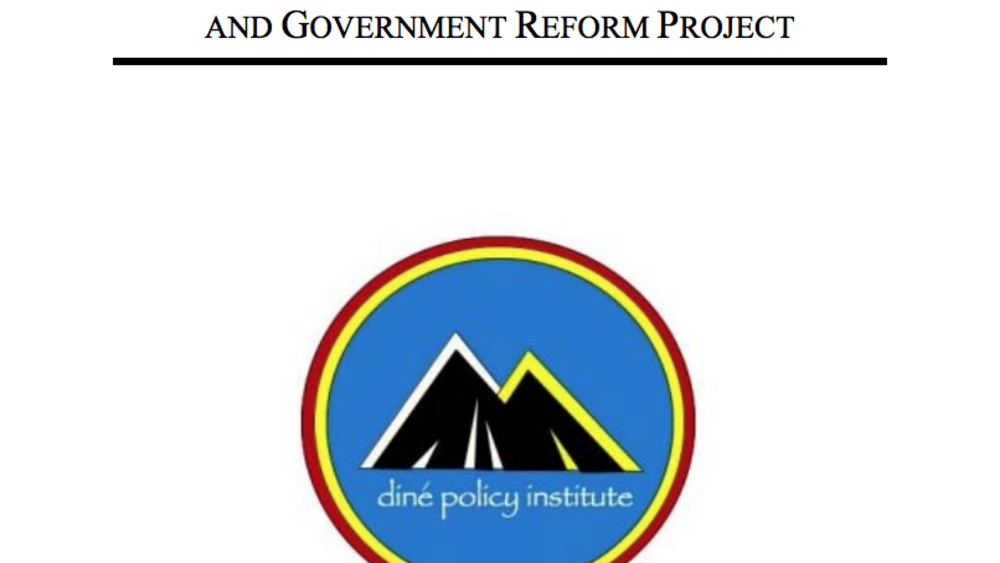
Navajo Nation Constitutional Feasibility and Government Reform Project
This paper will review three important elements related to the constitutional feasibility and government reform of the Navajo Nation. The first section will outline the foundational principles related to constitutionalism and ask whether constitionalism and the nation-state are appropriate…
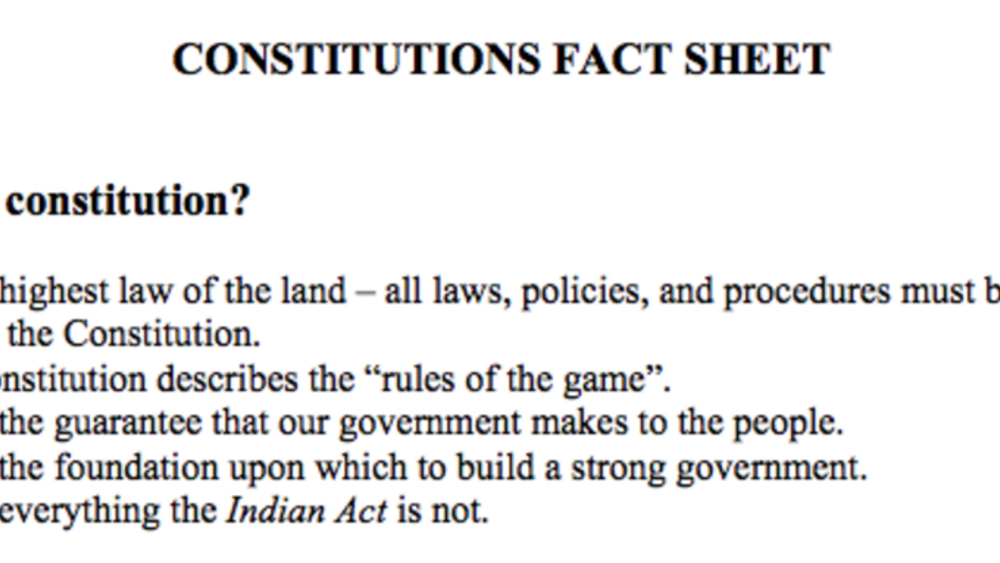
Constitutions Fact Sheet
The National Centre for First Nations Governance developed this quick reference for Native nations who are discussing constitutions and constitutional reform.
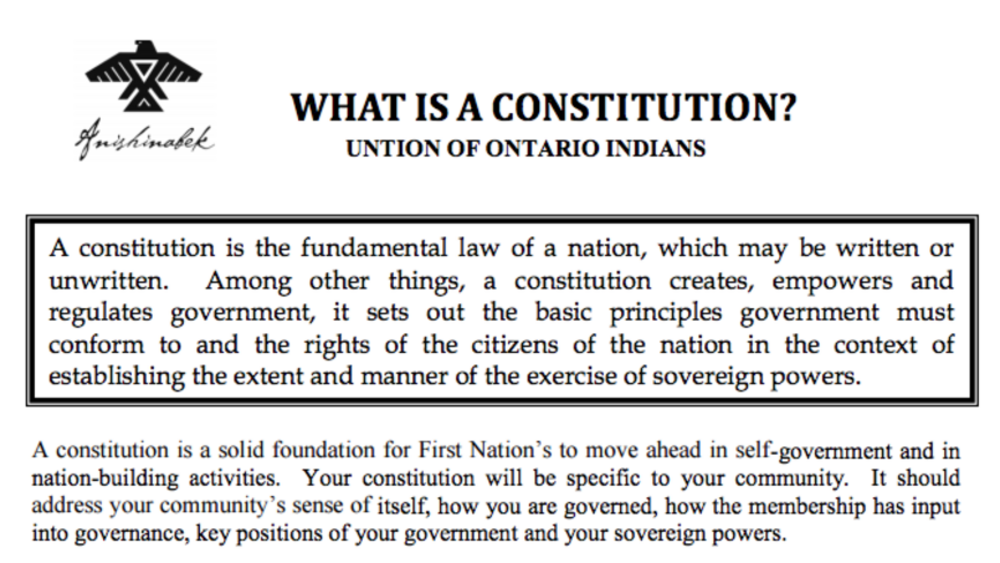
First Nation Constitutions
A constitution is a solid foundation for First Nations to move ahead in self-government and in nation-building activities. Your constitution will be specific to your community. It should address your community's sense of itself, how you are governed, how the membership has input into governance,…
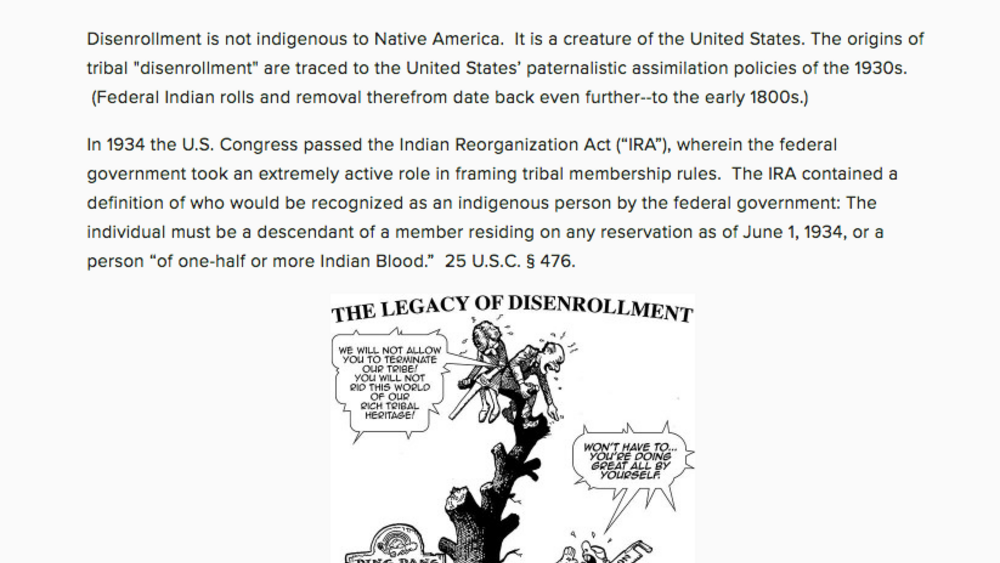
An Essay on the Federal Origins of Disenrollment
Disenrollment is not indigenous to Native America. It is a creature of the United States. The origins of disenrollment are traced to the United States’ paternalistic assimilation policies of the 1930s. In 1934 the U.S. Congress passed the Indian Reorganization Act (“IRA”), wherein the federal…
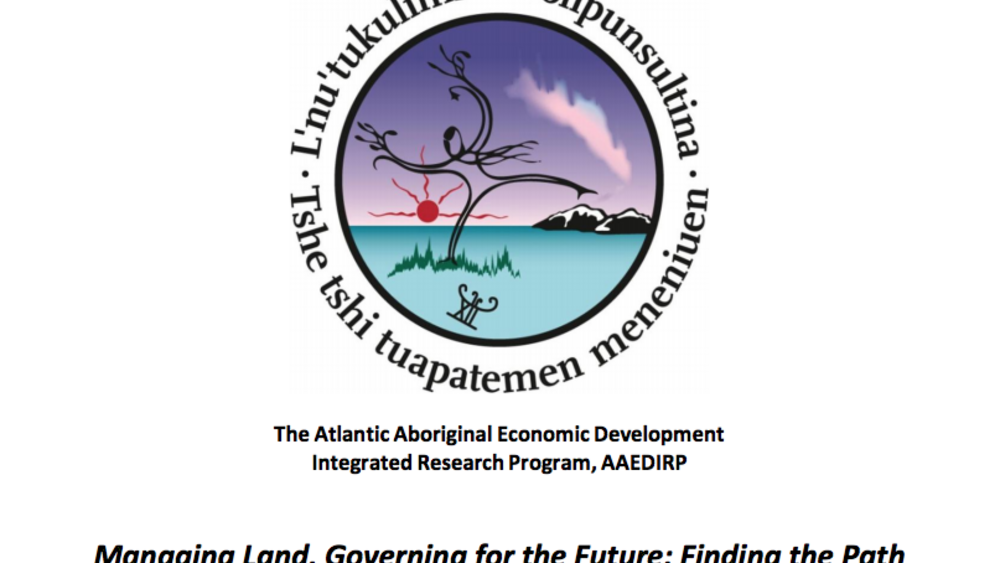
Managing Land, Governing for the Future: Finding the Path Forward for Membertou
This in-depth, interview-based study was commissioned by Membertou Chief and Council and the Membertou Governance Committee, and funded by the Atlantic Aboriginal Economic Development Integrated Research Program to investigate methods by which Membertou First Nation can further increase its…
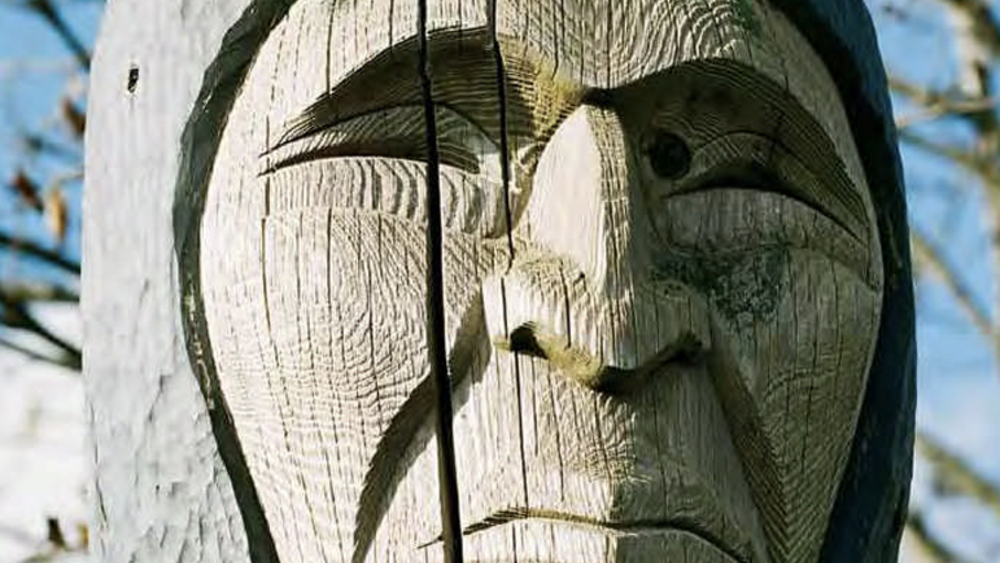
A Guide to Community Engagement
In this third part of the BCAFN Governance Toolkit: A Guide to Nation Building, we explore the complex and often controversial subject of governance reform in our communities and ways to approach community engagement. The Governance Toolkit is intended as a resource for First Nations leadership. It…
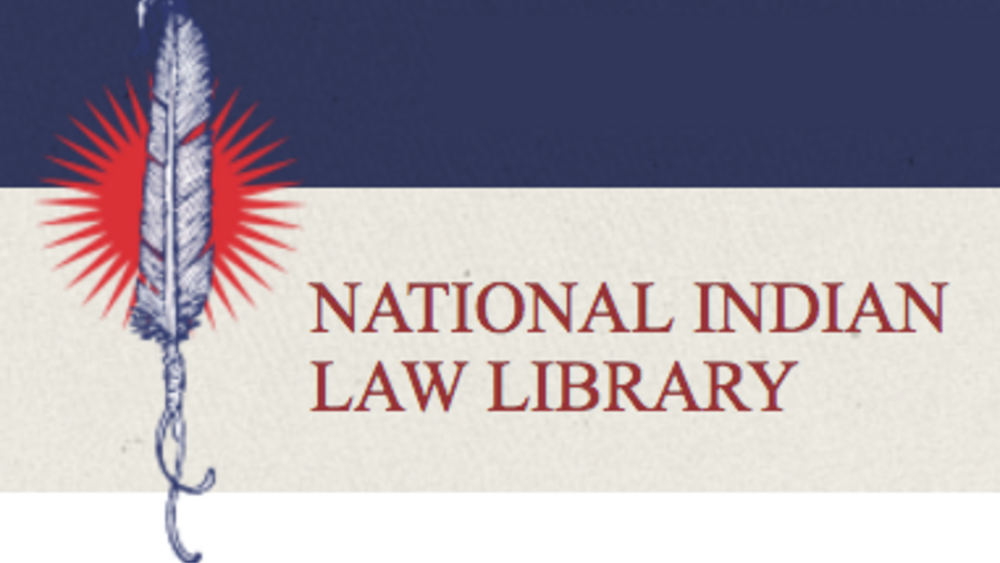
Peacemaking and Conflict Resolution: A List of Resources
The Native American Rights Fund's National Indian Law Library provides a comprehensive list of relevant news stories and academic articles on the peacemaking mechanisms and conflict resolution approaches of Native nations.
Pagination
- First page
- …
- 73
- 74
- 75
- …
- Last page
